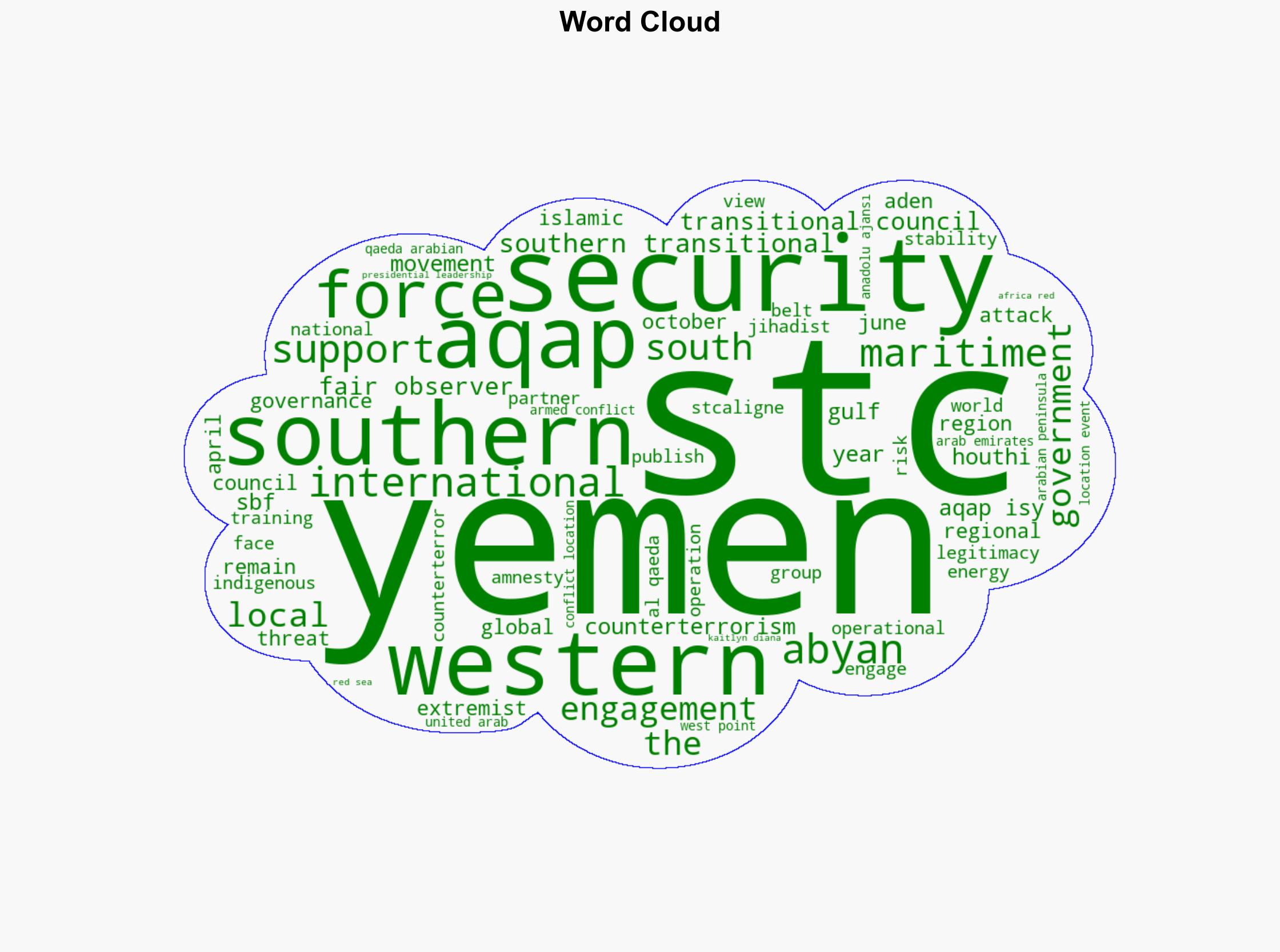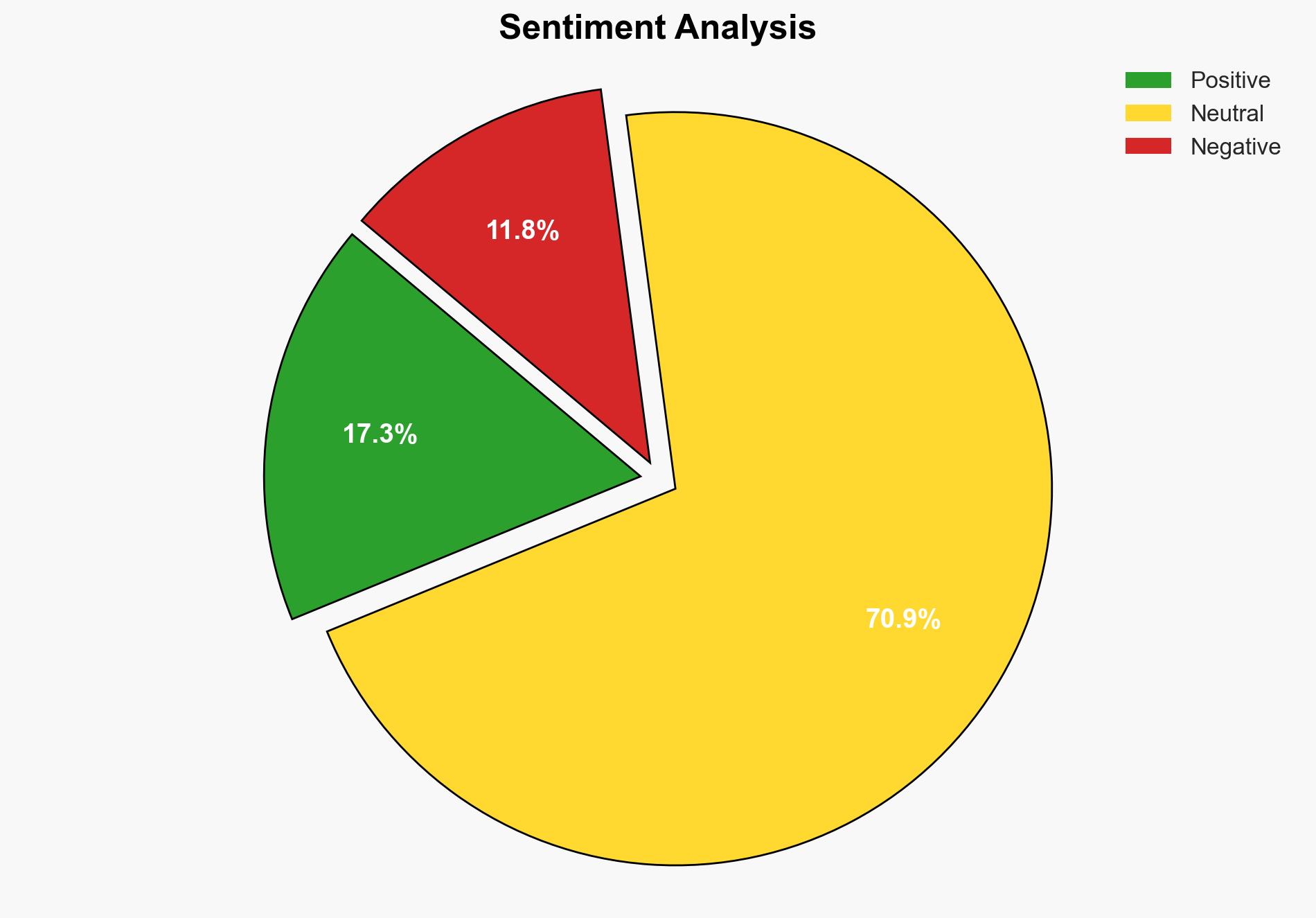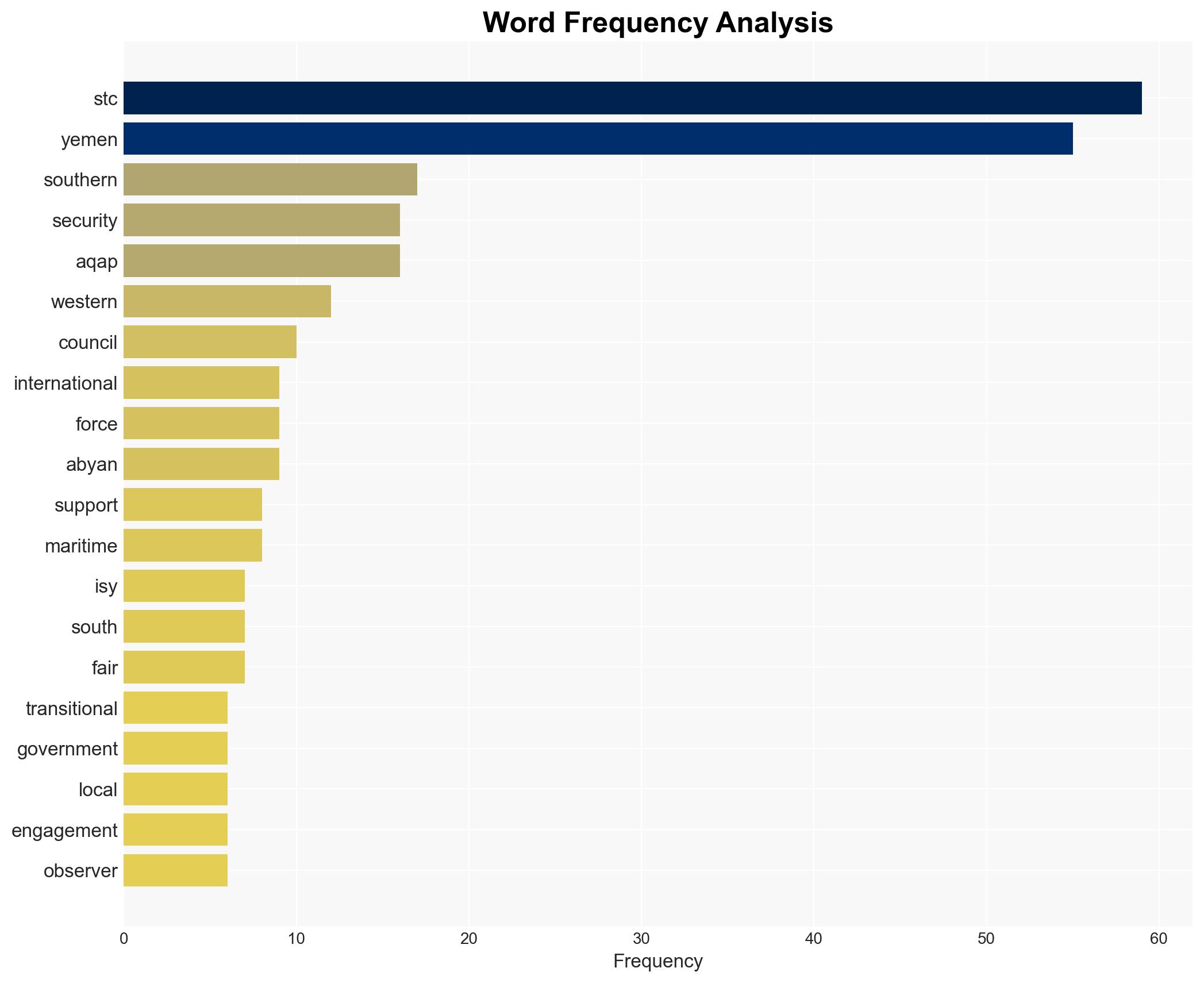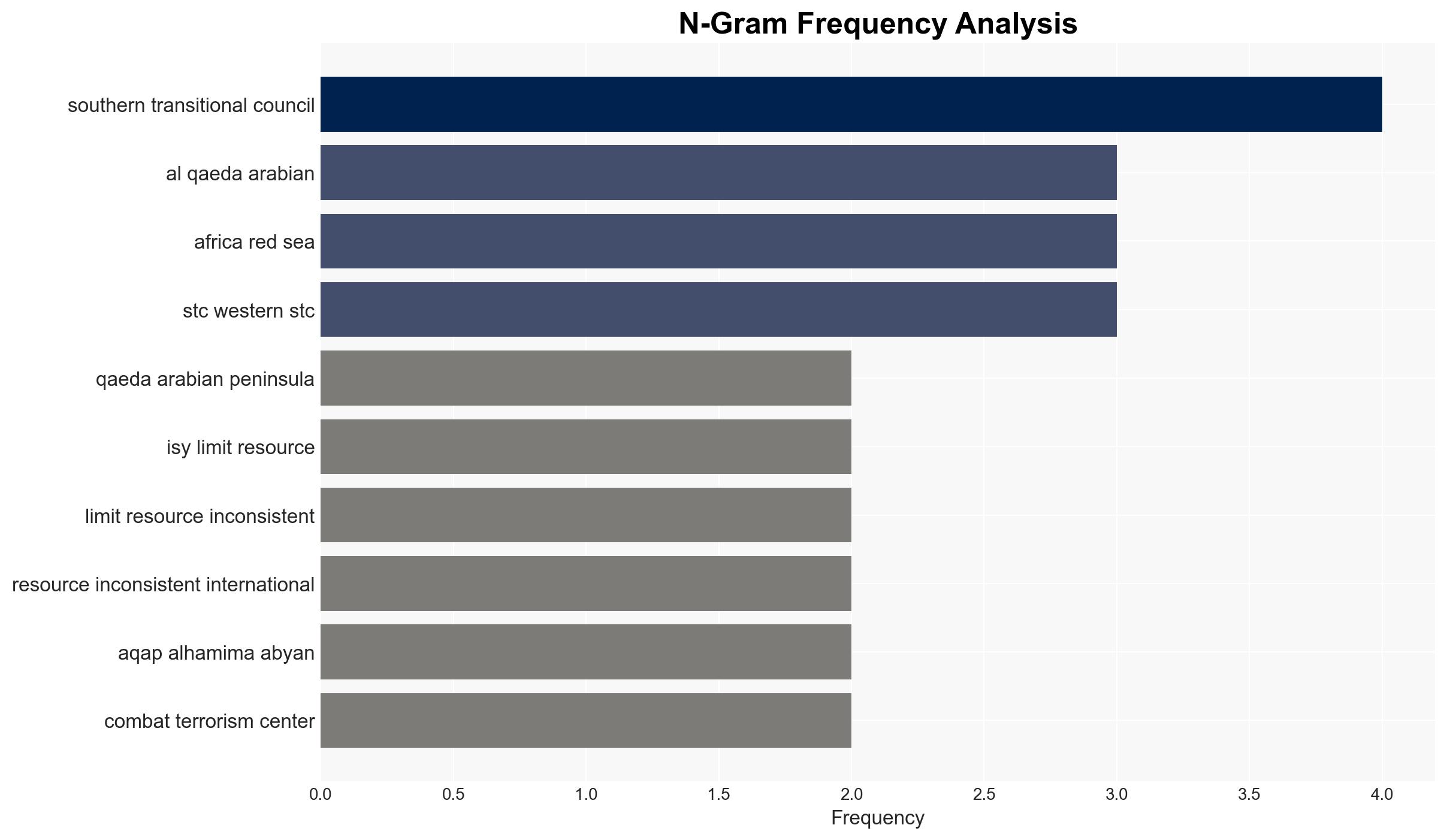The Southern Transitional Council Countering Extremism and Securing Maritime Stability in Yemen – Fair Observer
Published on: 2025-11-19
AI-powered OSINT brief from verified open sources. Automated NLP signal extraction with human verification. See our Methodology and Why WorldWideWatchers.
Intelligence Report:
1. BLUF (Bottom Line Up Front)
The Southern Transitional Council (STC) is a critical local partner in countering extremism in Southern Yemen, with the potential to stabilize maritime security in the region. However, their effectiveness is hindered by limited resources and inconsistent international support. The most supported hypothesis is that the STC, with enhanced international backing, can significantly mitigate extremist threats and contribute to regional maritime stability. Confidence Level: Moderate.
2. Competing Hypotheses
Hypothesis 1: The STC, with its indigenous legitimacy and operational capacity, is the most capable local force to counter AQAP and ISY effectively, provided they receive consistent international support and resources.
Hypothesis 2: The STC’s efforts will remain insufficient to counter extremist threats and stabilize the region due to internal fragmentation, limited resources, and the complex political landscape, regardless of international support.
Hypothesis 1 is more likely due to the STC’s established local legitimacy and operational presence, which are critical in counterterrorism efforts. However, the success of this hypothesis is contingent upon sustained and strategic international engagement.
3. Key Assumptions and Red Flags
Assumptions: The STC has the local legitimacy necessary for effective counterterrorism operations. International support can be mobilized and sustained.
Red Flags: The STC’s dual identity as a political and military actor could lead to conflicts of interest. The fragmented political environment in Yemen may undermine STC’s efforts.
Deception Indicators: Reports of STC’s successes may be overstated to secure international support.
4. Implications and Strategic Risks
The failure to support the STC adequately could lead to increased AQAP and ISY activity, exacerbating regional instability and threatening global maritime trade routes. A security vacuum could also invite greater influence from Iran-aligned Houthi forces, complicating the geopolitical landscape further.
5. Recommendations and Outlook
- Enhance intelligence sharing and provide specialized training and logistical support to STC-aligned forces.
- Develop direct liaison mechanisms to bypass national-level bottlenecks and ensure timely support.
- Best Scenario: STC stabilizes Southern Yemen, reducing extremist threats and securing maritime routes.
- Worst Scenario: STC fails to contain extremism, leading to increased regional instability and threats to global trade.
- Most-likely Scenario: With strategic support, the STC partially mitigates threats, but challenges persist due to political fragmentation.
6. Key Individuals and Entities
Southern Transitional Council (STC), Al-Qaeda in the Arabian Peninsula (AQAP), Islamic State Yemen Province (ISY), United Arab Emirates (UAE).
7. Thematic Tags
Cybersecurity, Counterterrorism, Maritime Security, Regional Stability, Yemen Conflict
Structured Analytic Techniques Applied
- Adversarial Threat Simulation: Model and simulate actions of cyber adversaries to anticipate vulnerabilities and improve resilience.
- Indicators Development: Detect and monitor behavioral or technical anomalies across systems for early threat detection.
- Bayesian Scenario Modeling: Forecast futures under uncertainty via probabilistic logic.
- Network Influence Mapping: Map influence relationships to assess actor impact.
Explore more:
Cybersecurity Briefs ·
Daily Summary ·
Support us





